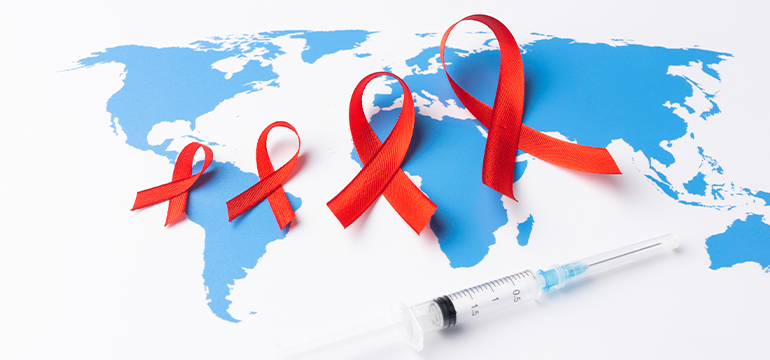By: Raj Gore
Cancer remains a big challenge globally as well as in India. According to a report by the FICCI & EY, in 2022, there were about 2 million cancer cases reported, while the on-ground number is estimated to be higher by a factor of 1.5 to 3. And this number is estimated to burgeon to between 2.5 million to 2.8 million by 2030. Clearly, the burden of cancer is increasing in India. Cancer cases are seen growing on the back of factors, such as an aging population, lifestyle changes (including a sedentary lifestyle, increased intake of alcohol, and use of tobacco products), and environmental degradation, among other factors.
For optimum results, cancer needs to be tackled at the individual and institutional levels. At the individual level, it is important to be well informed of the disease, its tell-tale signs for onset, prevention methods, treatment options available, and affordability.
At the institutional level, the government, its policies and initiatives, and private healthcare providers and non-government palliative caregivers play vital roles. The government’s National Cancer Control Program (NCCP) that aims to prevent and control cancer in India by focusing on primary prevention, early detection, diagnosis, treatment, and palliative care; the National Cancer Grid (NCG), a network of major cancer centres, research institutions, oncologists who work to standardise cancer care, promote research collaboration, and provide expert opinions to improve cancer treatment outcomes; the Affordable Medicines and Reliable Implants for Treatment (AMRIT) program which helps reach affordable cancer drugs and implants to patients, and the redoubtable Ayushman Bharat – Pradhan Mantri Jan Arogya Yojana (PM JAY), the government-led health insurance scheme that provides coverage for cancer treatment, are some of the initiatives taken by the government to provide the growing population of cancer patients with affordable treatment and implant options.
With the rise in awareness levels, early detection and the wider use of diagnostic technologies, it is projected that the Oncology Market in India will witness a growth of 11-12 per cent, reaching Rs 26,300 crore by 2024. The same study by Technavio on the India Oncology Market Industry Analysis 2023-2027 indicates that the oncology market in India is anticipated to expand by US$ 947.84 million between 2022 and 2027, with a compounded annual growth rate (CAGR) of 13.45 per cent.
In a country as large as India with varying degrees of infrastructural facilities, including health infrastructure, innovative models like the ‘Hub-and-Spoke’, are taking cancer care to a greater part of the population. In this model, technology is used effectively to detect cancer cases early on among people living in places distant from big cities and provide them with treatment modalities without the need to travel to these distant cities and metros.
In India, the way forward is marked by a few gaps that need to be effectively plugged for cancer care to reach all segments of society. These are:
Awareness and prevention gap: Awareness is key to cancer care. This includes awareness about the causes and risk factors of cancer, signs, early detection of cancer, treatment options and avenues, and outcomes. In the existing ecosystem, awareness levels differ across various types of cancer. For instance, awareness levels about tobacco-related cancers are high in India, while that of other common cancers such as cervical cancer is low. We must create awareness and effectively communicate the factors that could lead to cancer, such as Human papillomavirus (HPV), alcohol abuse, and obesity which can help prevention measures to be effectively implemented. Increasing awareness will result in increased early-stage diagnoses, necessitating the expansion of treatment capacity. This will benefit all stakeholders in the long run as heightened awareness, early detection, and prevention can effectively reduce cancer rates.
Screening and diagnosis gap: According to the Indian Council of Medical Research (ICMR), the number of cancer cases diagnosed in India is projected to increase by 12 percent over the next five years. However, only 1 per cent or less than 1 per cent of India’s population is covered under the screening programs for major cancer like oral, breast, and cervical cancers, while more than 2/3rd of cancer patients gets diagnosed at advanced stages due to delays in screening and late diagnosis. It is essential to expand screening programs to encompass individuals in rural areas, addressing the existing disparity compared to urban areas. This will help in early identification for downstaging the disease as well as achieving a reduction in mortality and morbidity.
Access to treatment gap: According to estimates, approximately 70 per cent of districts in India lack comprehensive cancer centers. The main reasons for this include the absence of trained healthcare professionals and the unavailability of diagnostic tools like radiotherapy. As a result, accessing adequate cancer care poses significant challenges, especially for individuals residing in rural regions where medical experts and facilities are inadequate compared to urban areas. While innovative models like the ‘Hub and Spoke’ try to bridge this gap, more such innovative strategies need to be implemented going forward.
Outcome gap: The growing incidence of cancer in India is further intensified due to suboptimal outcomes in comparison to global standards for various major cancer types. It is imperative to emphasize the importance of early diagnosis through awareness campaigns, as late-stage diagnosis frequently results in advanced-stage cancer and adverse treatment outcomes. However, as the ecosystem continues to evolve with heightened awareness, expanded screening and treatment facilities, improved detection rate, and enhanced access to treatments, India can expect this gap to close and achieve reduced cancer incidence.
Although the existing gaps and challenges may appear overwhelming, they can be overcome by forming alliances, uniting voices, and initiating action. The most effective approach to altering the trajectory of cancer involves integrating awareness, prevention, early detection, and comprehensive care. By working collectively, we can possess the capability to generate a substantial influence and ensure that no one is left behind in the battle against cancer.
The author is Co-Chair, FICCI Task Force on Cancer Care Infrastructure & CEO, Healthcare Global Enterprises (HCG) Ltd.




